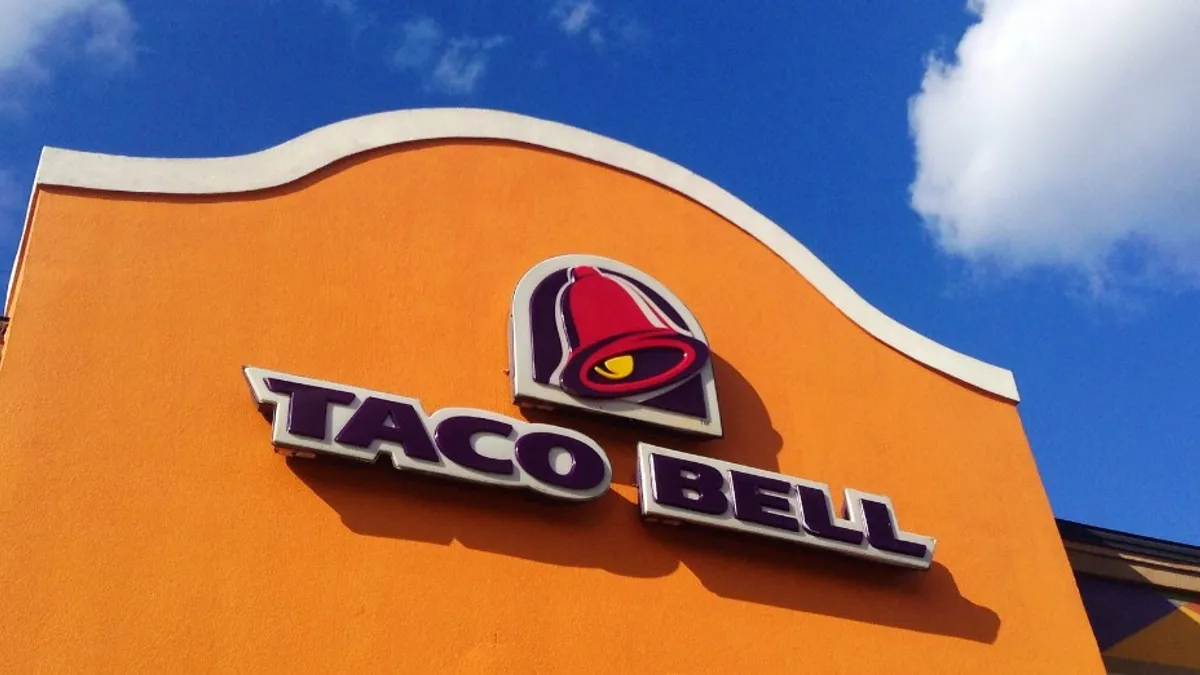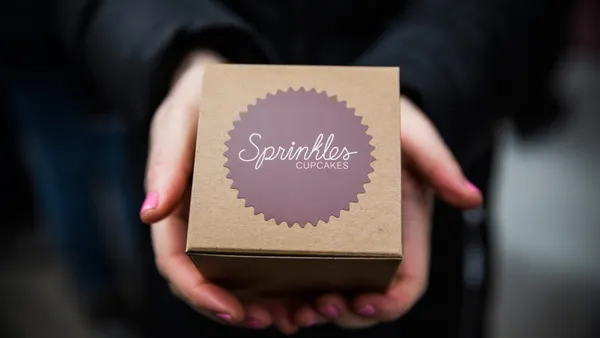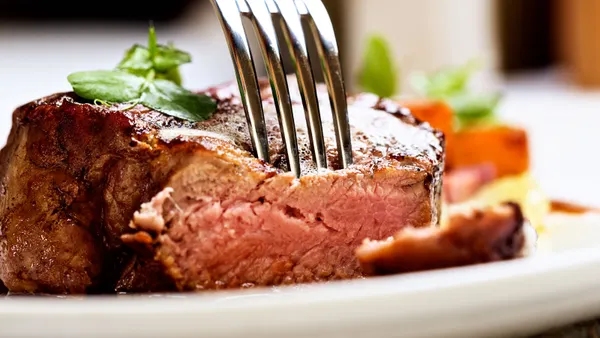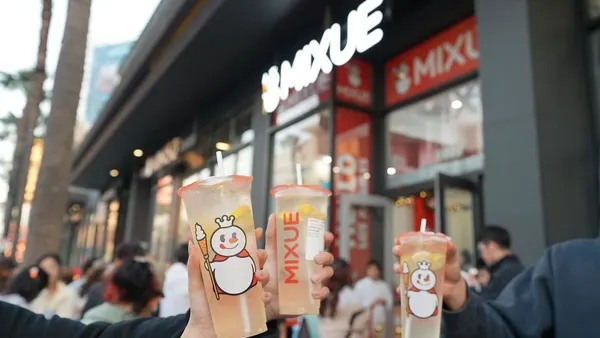Dive Brief:
- Yum Brands' franchisees have experienced "significant" store closures and reduced store-level operations, the restaurant group said in a regulatory filing Tuesday. As of March 18, approximately 7,000 Yum restaurants around the world are closed. Those restaurants include over 1,000 Pizza Hut Express units in the U.S. and over 900 KFC units in the UK. Many markets, including the U.S., are limited to drive-thru, delivery and carryout-only operations.
- In its filing, Yum said it suspended its $2 billion share buyback program, which will allow Yum to keep more cash on hand to get its franchisees through the crisis. On March 24, it also borrowed $525 million under a revolving facility to "fund its operations and meet its obligations," in addition to $425 million borrowed under a revolving facility on March 18 to fund amounts associated with its The Habit Restaurants acquisition.
- The impact on company sales from the coronavirus pandemic has differed by market and duration, as well as a market's dine-in presence, but Yum estimates that same-store sales for the quarter ended March 31 will be down mid-to-high single digits, with a more significant impact in the quarter ended June 30.
Dive Insight:
If there is any good news right now for Yum Brands, it's that the company is seeing early signs of recovery in the markets that were first impacted by COVID-19, though it cautions there "can be no assurance of continued improvement." Earlier this week, Yum China said its business was in the early stages of recovery, weeks after the company closed over one-third third of its restaurants.
This same pattern of recovery has lifted Starbucks' optimism, as well, including in the U.S. market, as CEO Kevin Johnson told CNBC Tuesday. However, while Starbucks and Yum have both been deeply impacted by the global outbreak, recovery will look different for these two companies. Starbucks stores are company-owned, while Yum will have to work hard to ensure the survival of a mostly-franchised system. Yum said in the filing that it will help franchisees in good standing access to capital and general assistance, including "grace-periods for certain near-term payments where necessary" and the additional cash flow that it created with pausing its share buyback will certainly help fund these measures.
Yum has about 50,000 restaurants around the world, which underscores the vulnerability of its franchise business as the pandemic decimates the industry. However, CEO David Gibbs told CNBC last week that Yum will recover by focusing on those franchisees’ needs.
"[Yum's] 18,000 restaurants I mentioned [in the U.S.], they're all run by franchisees. They're small business people. They're one of my highest priorities right now to make sure that we protect them and they can come out of this on the other end whole," Gibbs said. "What we will do is provide them some guidance with how they think through that with their lenders, with their landlords and other obligations. ... This is more of a small business problem than it is a big corporate problem."
The outlook for Yum is grim, but the company is hardly alone in navigating a dire situation. Moody’s predicts industry profits could decline by as much as 20% over the next 12 months, perhaps causing the industry that has struggled with oversaturation to correct itself.
For now, Yum has fared better than most restaurant stocks during the wildly swinging market, dropping only 33.7% as of March 16 compared to a month ago, according to a S&P Global Market Intelligence report. Comparitively, Darden's stock declined nearly 60%. It's likely faired better because its three concepts — Taco Bell, KFC and Pizza Hut — are well suited for the contactless carryout/delivery shift that has come from the outbreak. In fact, Pizza Hut, which has been a thorn in Yum's side in recent quarters, is hiring more than 30,000 permanent drivers to meet a growing demand.
No doubt the companies that are the best capitalized and focused on their operators are in the best position to recover from this crisis in the long term, and right now, Yum Brands is checking both of those boxes.









